Maroš Šefčovič says physical checks across Irish Sea could be cut
- Published
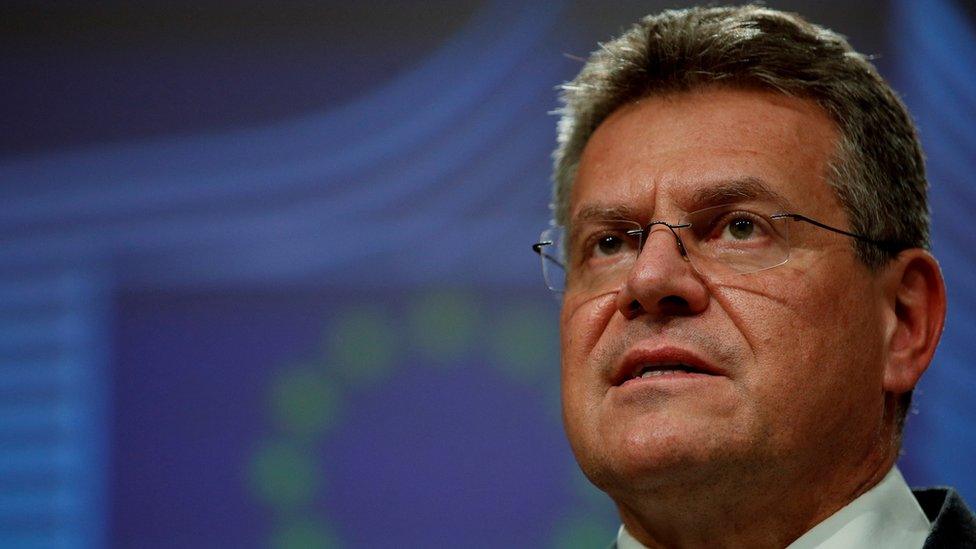
Maroš Šefčovič said the EU was "ready to work in an open and constructive way"
The EU's chief Brexit negotiator has said physical checks on goods travelling across the Irish Sea could be cut to a "couple of lorries a day".
Customs checks would only be made when there was reasonable suspicion of illegality or dangerous goods, Maroš Šefčovič told the Financial Times.
The EU is ready to work in a "open and constructive" way with the UK, he said.
Prime Minister Liz Truss has said she is hoping for a negotiated solution to issues surrounding the NI Protocol.
However, she said any solution must contain all of the policies within the government's Northern Ireland Protocol Bill.
It cleared the House of Commons in July and goes to the Lords in the autumn.
The bill would give ministers the power to scrap parts of the EU-UK post-Brexit deal.
The protocol is designed to prevent a hard border on the island of Ireland but it is unpopular with unionists because it has introduced new trade barriers in the Irish Sea.
'Invisible border'
Mr Šefčovič said he was "encouraged" by Ms Truss's recent remarks.
He argued the trade border would be "invisible" under the EU's plans, with goods processed remotely while making their way to Northern Ireland, as long as the UK provides real-time data on their movements.
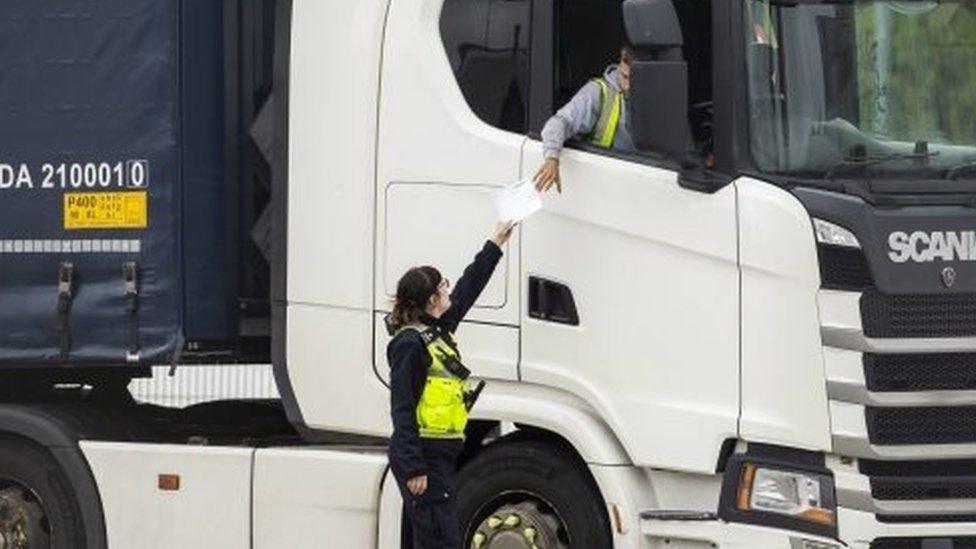
Last week, Taoiseach (Irish prime minister) Micheál Martin said a "pathway" to resolving the issues could be found "if there is a will", and that his government would work with the UK and the EU "to do the practical and sensible thing".
He said a strong partnership between the two governments was "vital" to underpin the Good Friday Agreement.

What is in the Northern Ireland Protocol bill?
The UK government published plans for the bill in June. At the centre of the proposal is the concept of green lanes and red lanes for trade.
This would mean:
Goods coming from Great Britain into Northern Ireland and which are staying would use the green lane. This means there would be no checks and paperwork would be minimal
GB goods moving through NI into Ireland or the wider European Union would use the red lane and continue to be checked at NI ports
London also wants any trade disputes resolved by "independent arbitration" and not by the European Court of Justice, and for Northern Ireland to benefit from the same tax breaks as elsewhere in the UK.

Last week, the White House warned again that dismantling the Northern Ireland Protocol would "not create a conducive environment" for US-UK trade talks.
US President Joe Biden's press secretary, Karine Jean-Pierre, said such actions could harm the Good Friday Agreement.
The warning came as the Northern Ireland secretary said he wanted to "negotiate a solution" with the EU.
However, Chris Heaton-Harris told MPs the government would still legislate if this did not happen.
The impasse between the UK and the EU over the Northern Ireland Protocol is one of the most serious and immediate issues facing the new prime minister in her relations with the US.
As foreign secretary, Liz Truss was at the forefront of UK government threats to unilaterally rewrite the protocol, something opposed by the EU and Washington.
Related topics
- Published11 September 2022
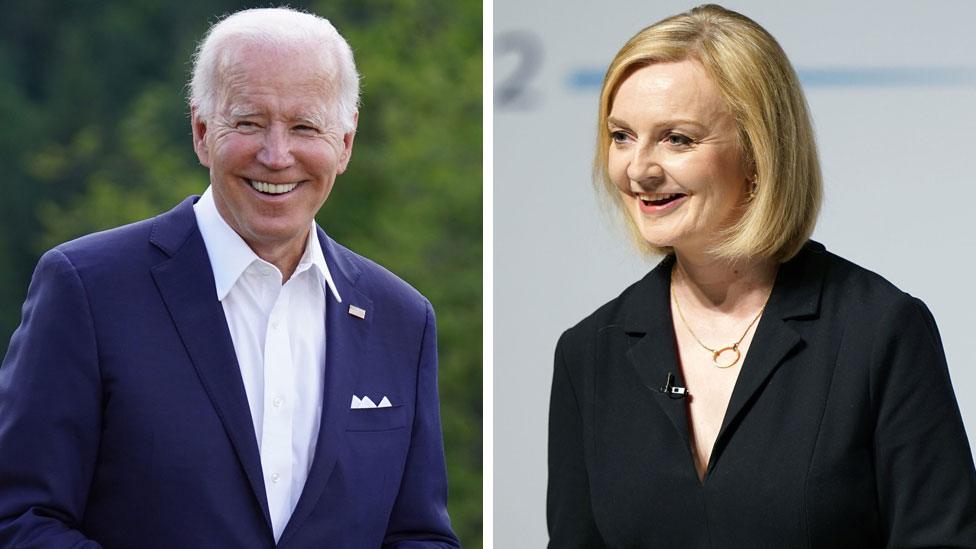
- Published5 September 2022
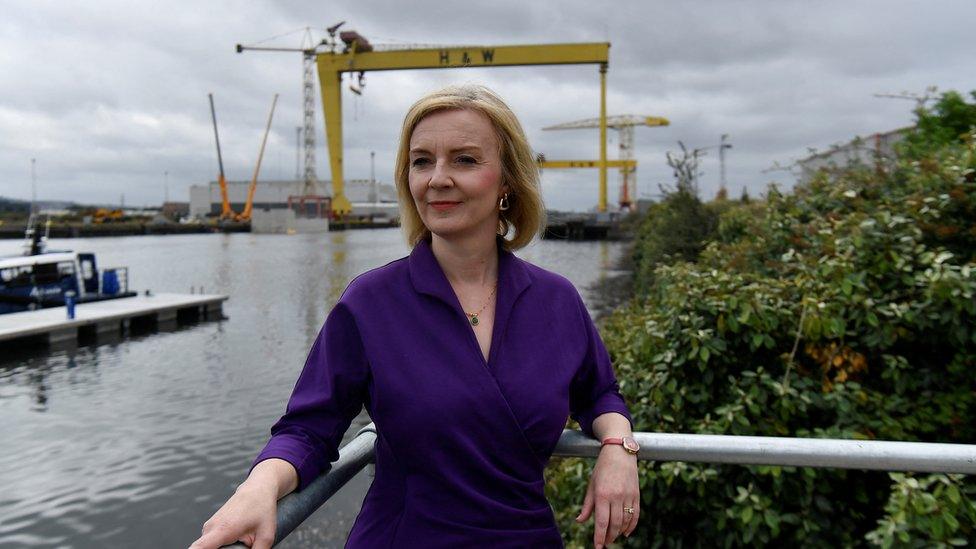
- Published2 September 2022
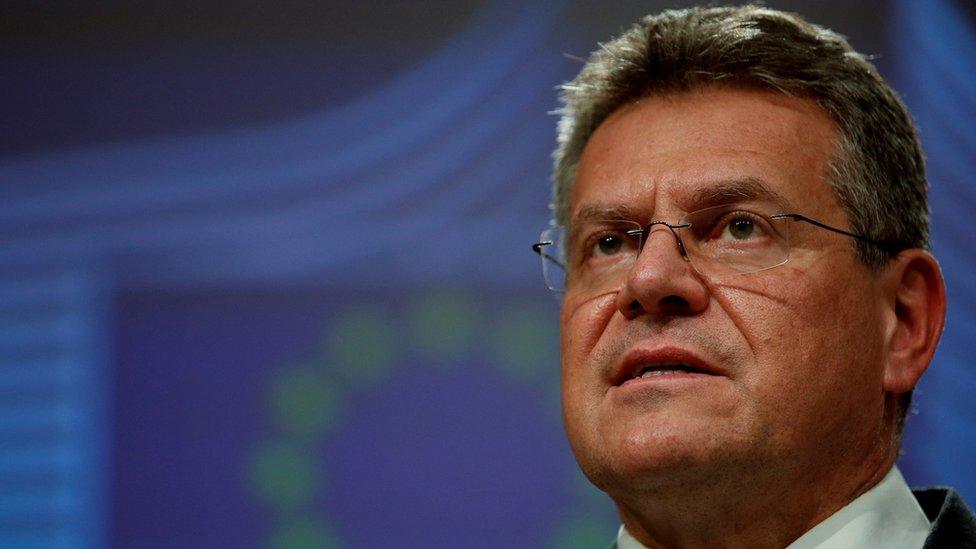
- Published2 February 2024
